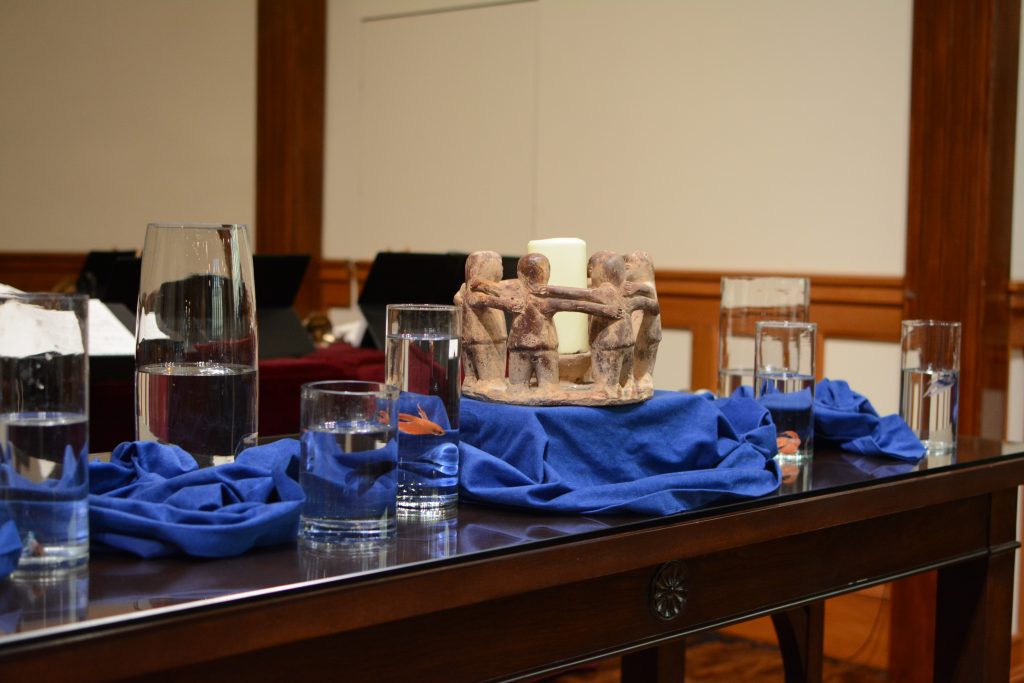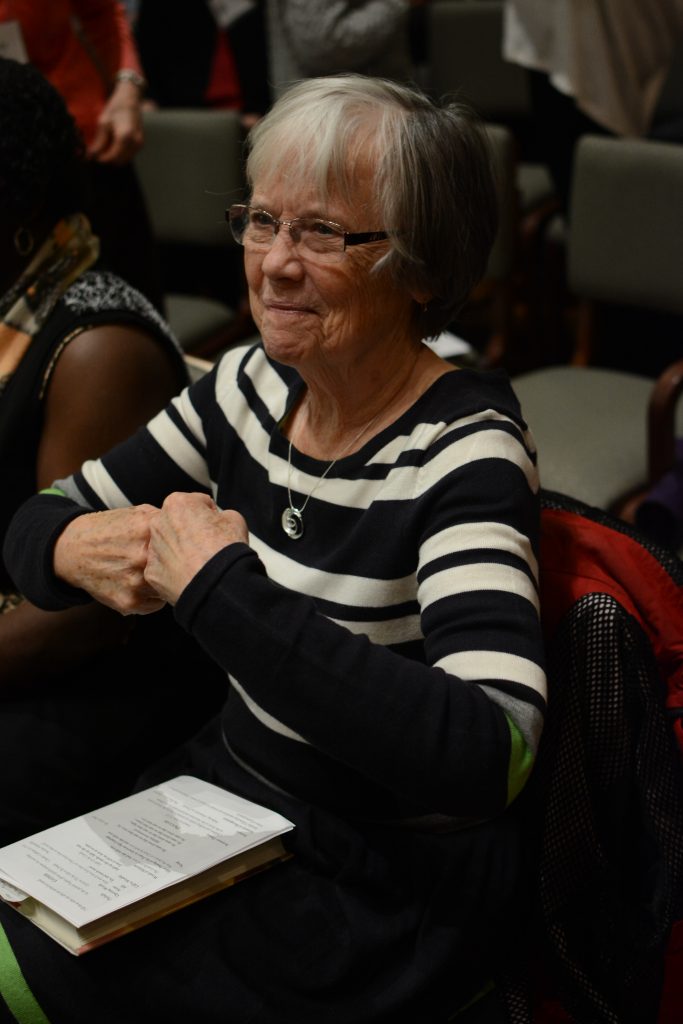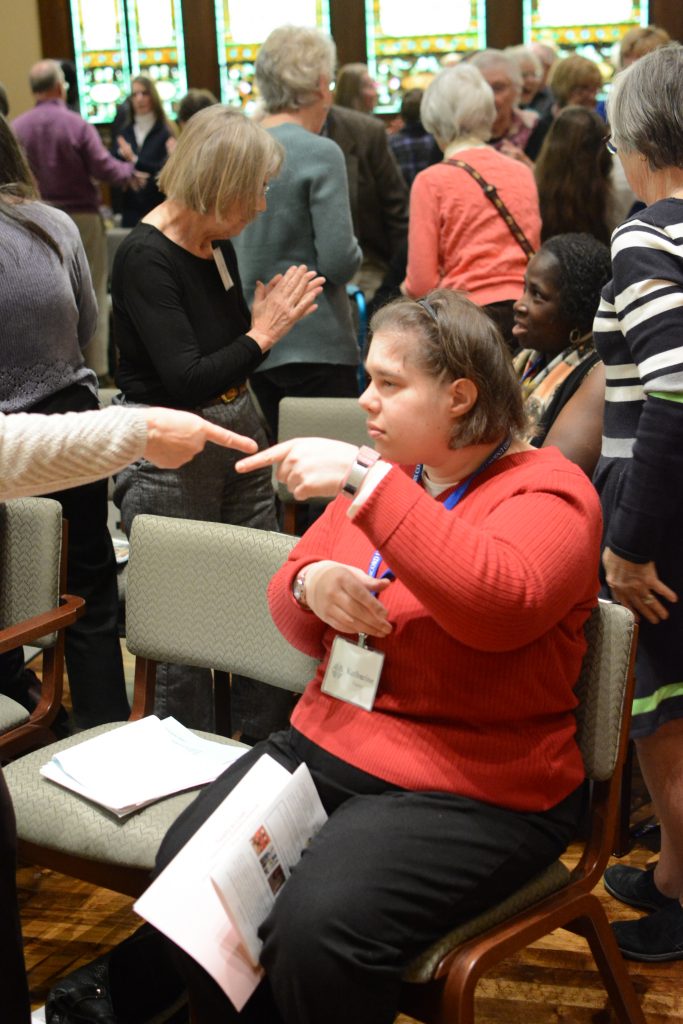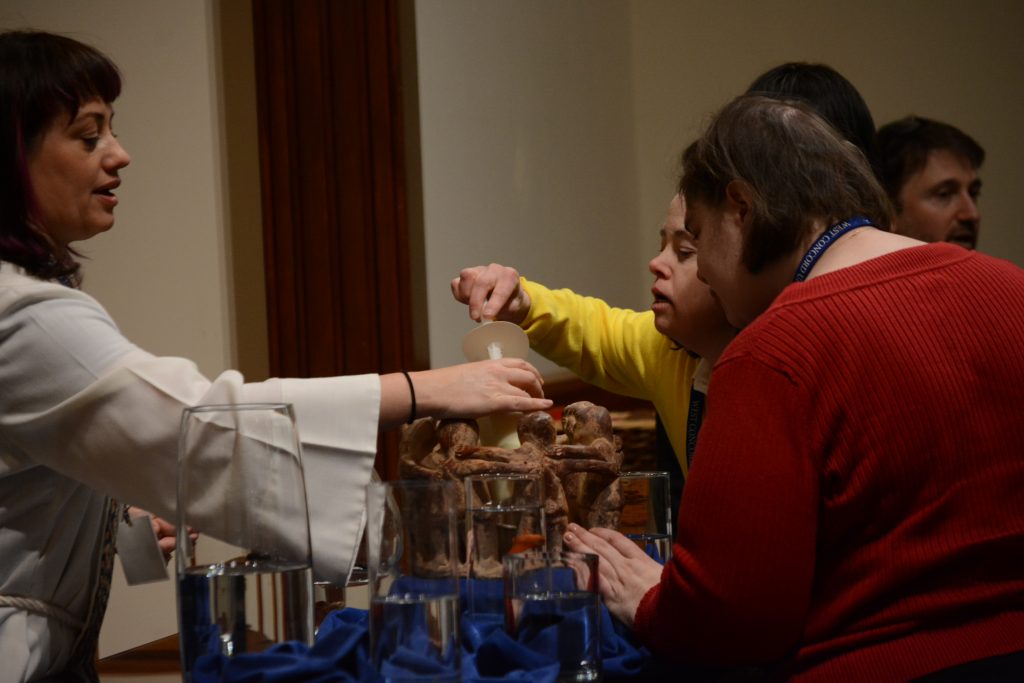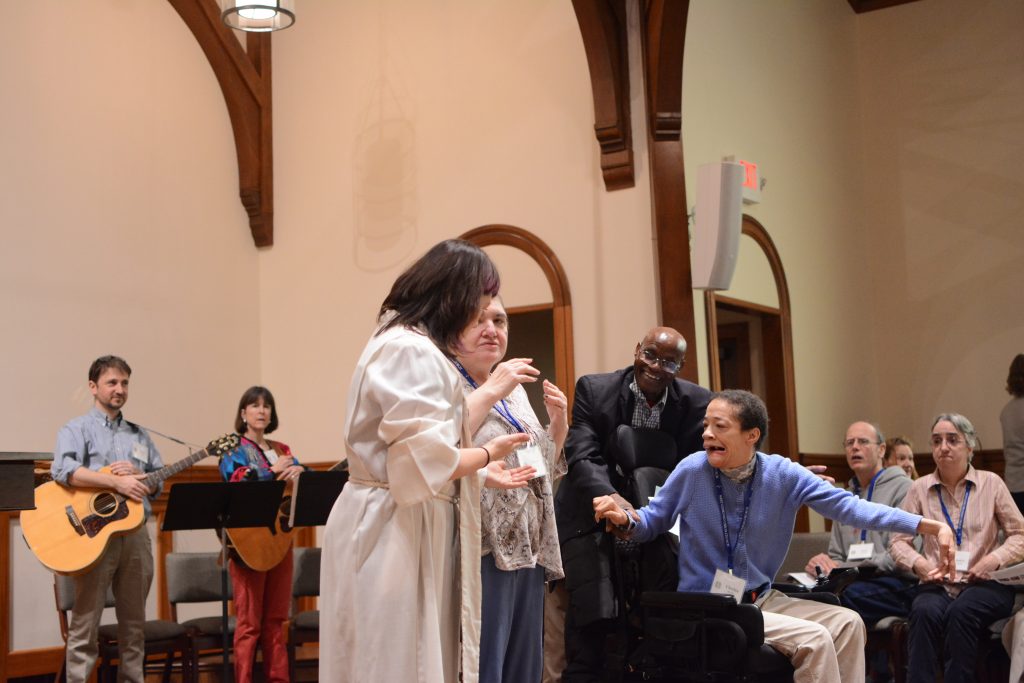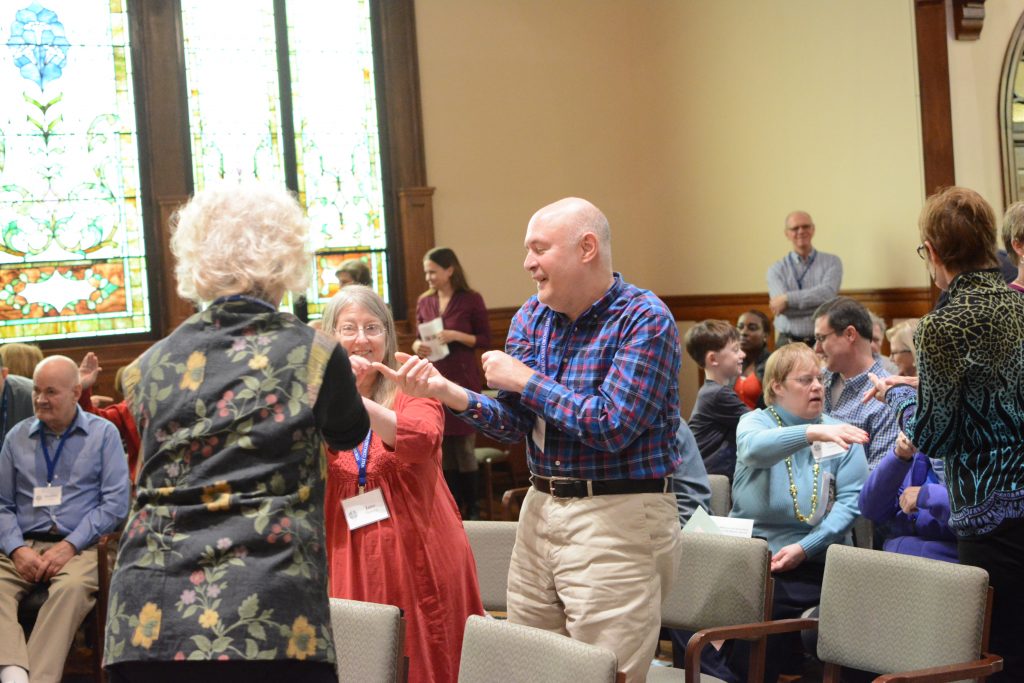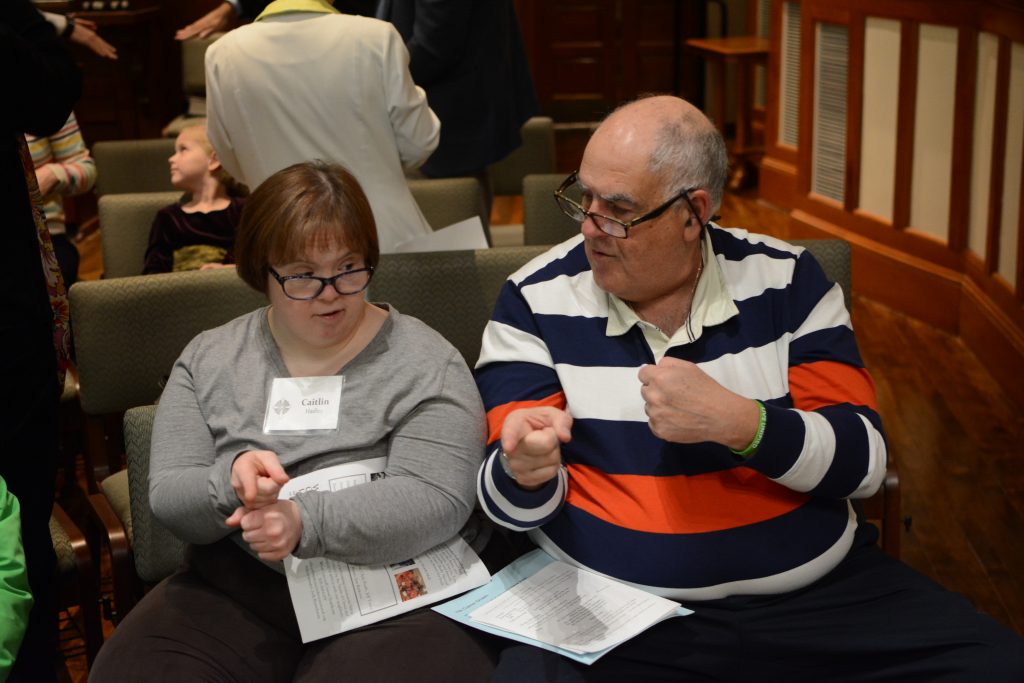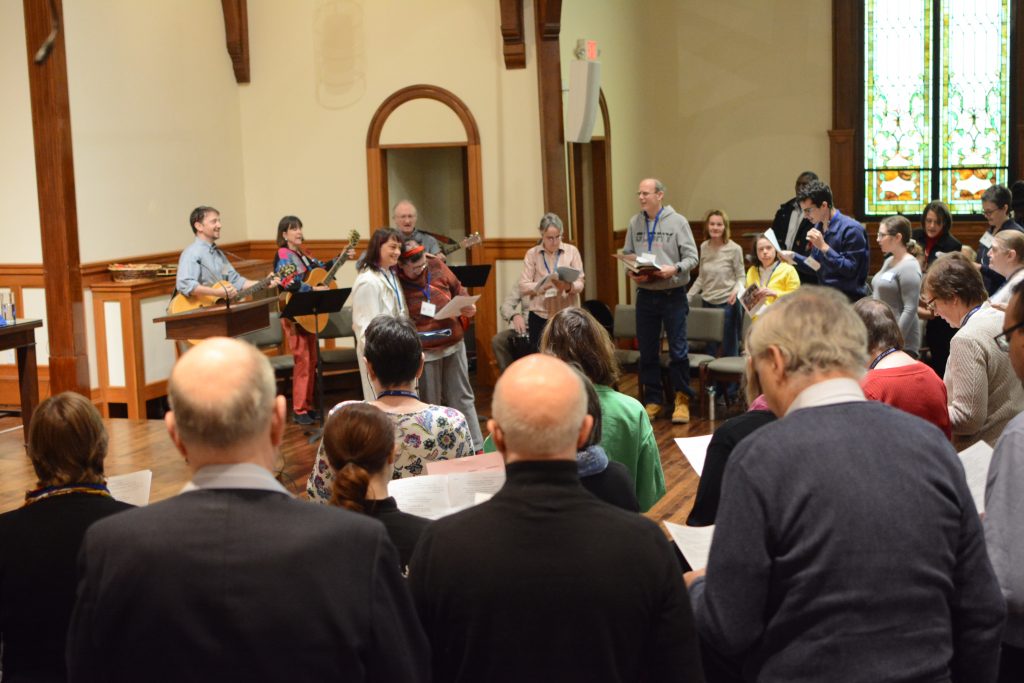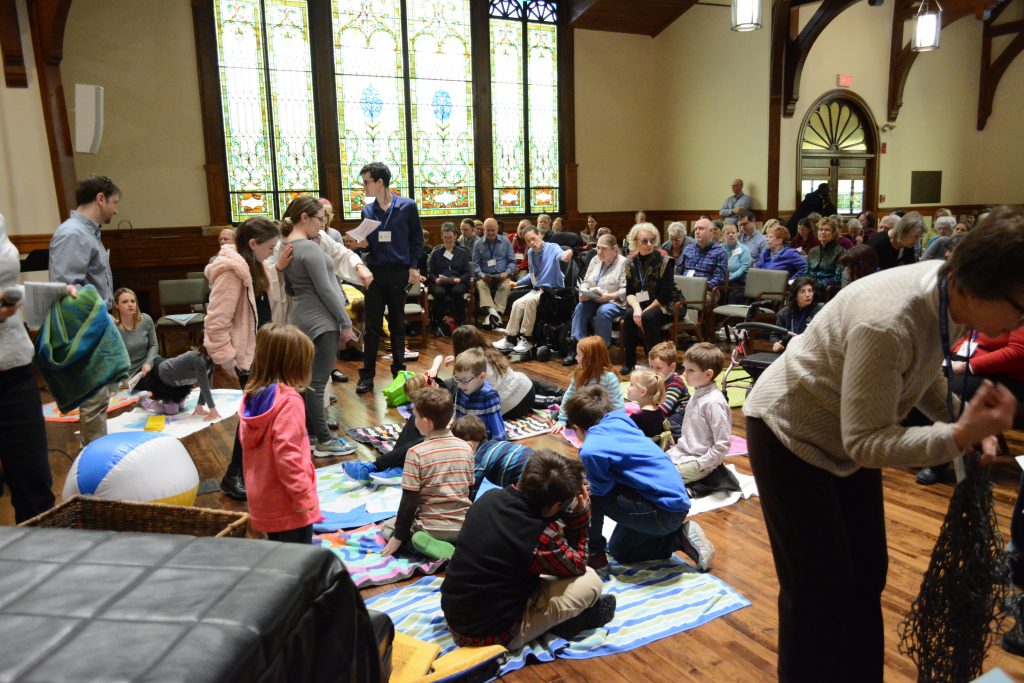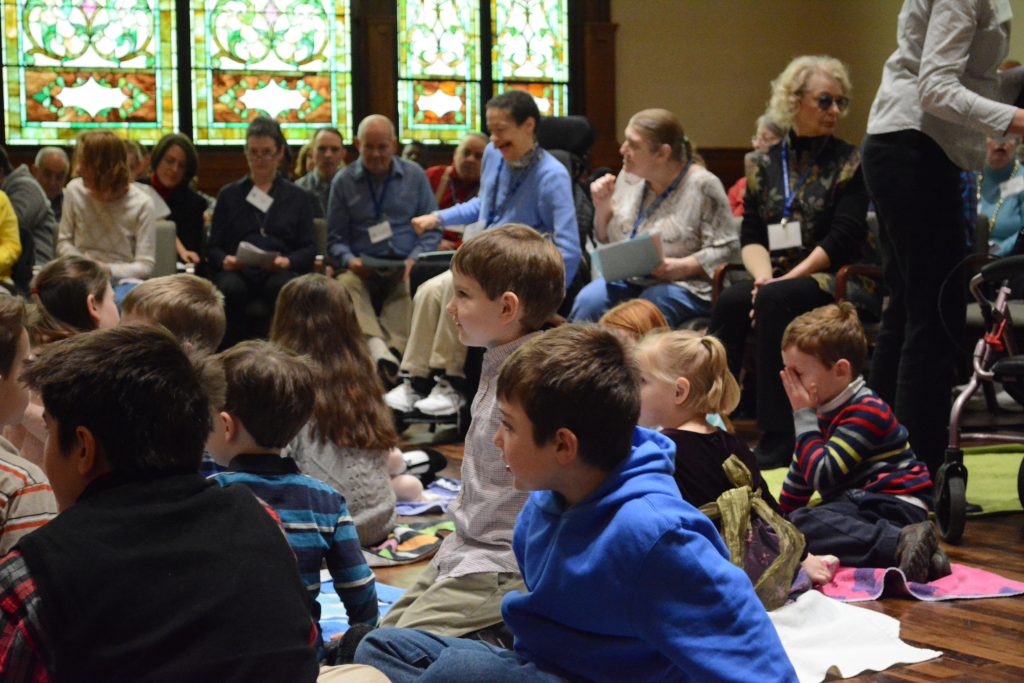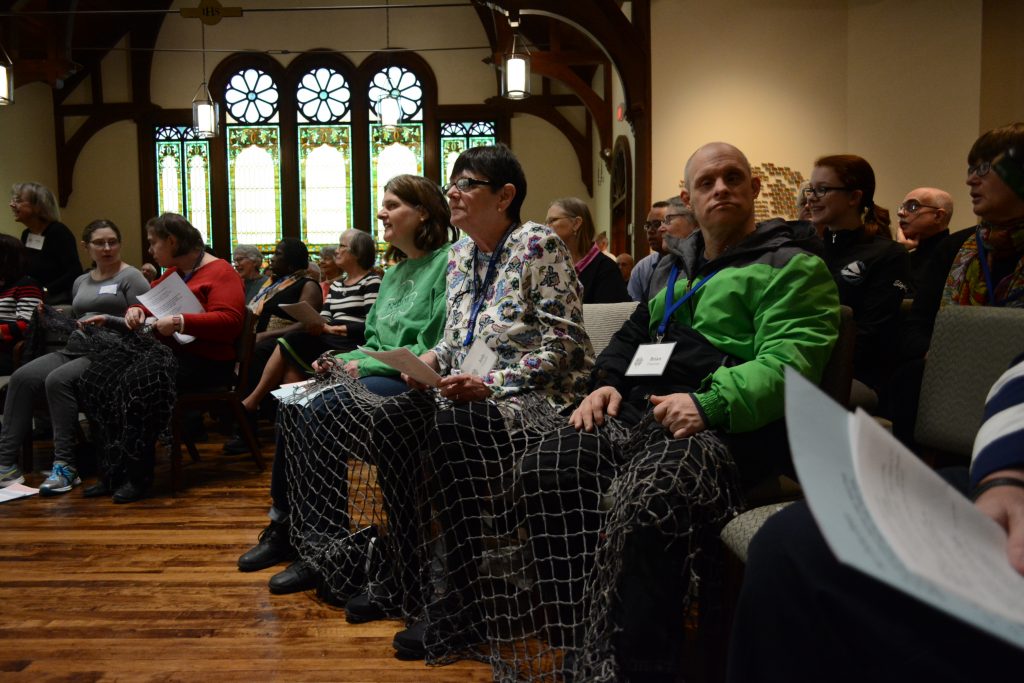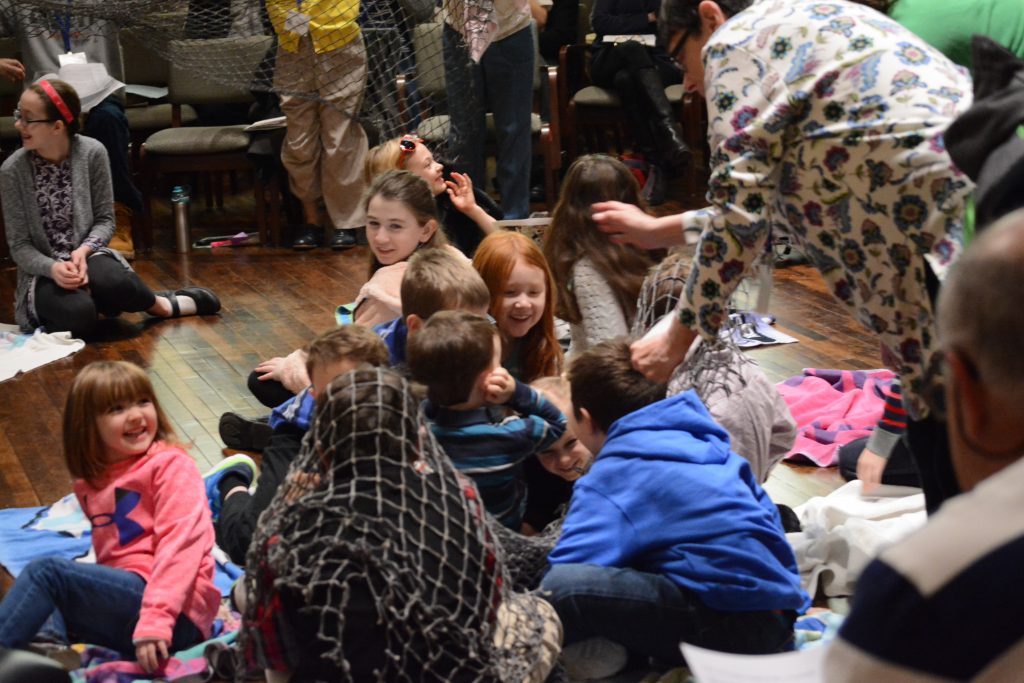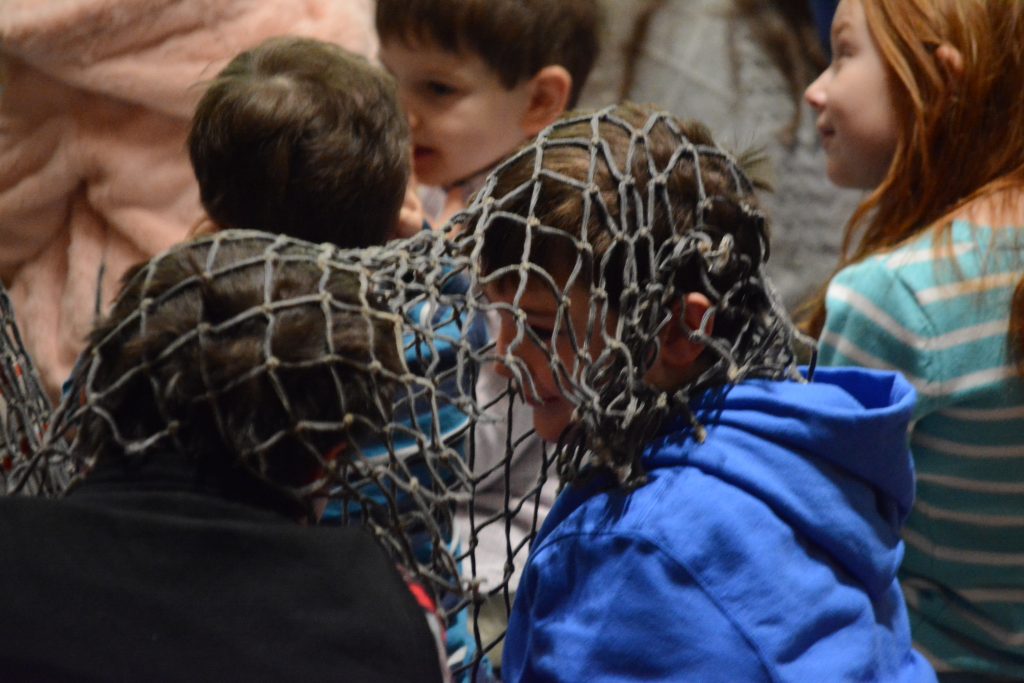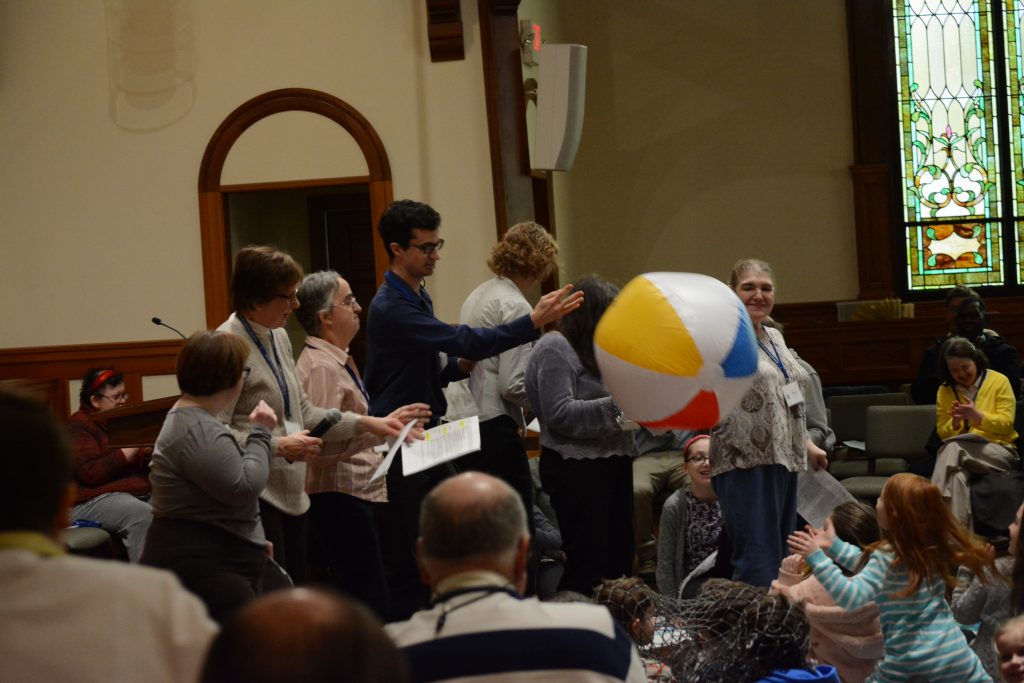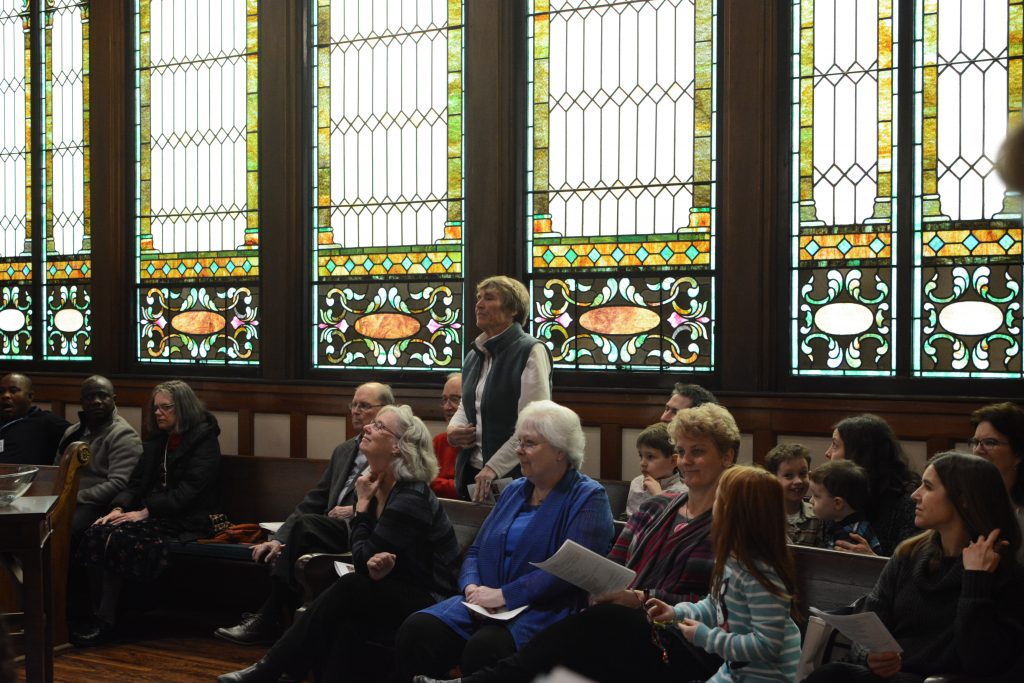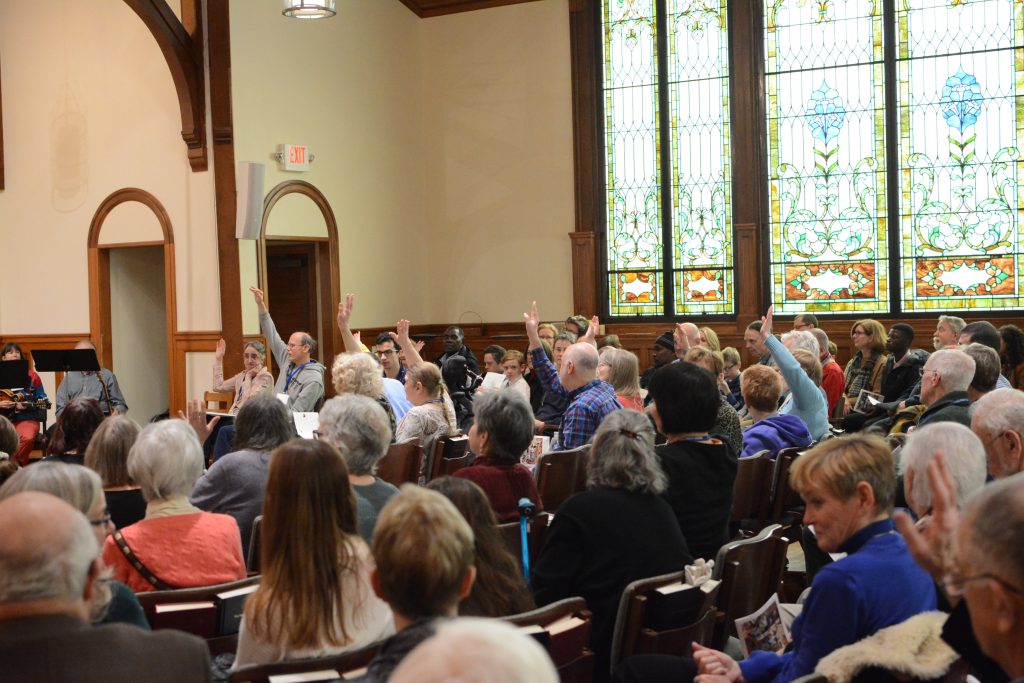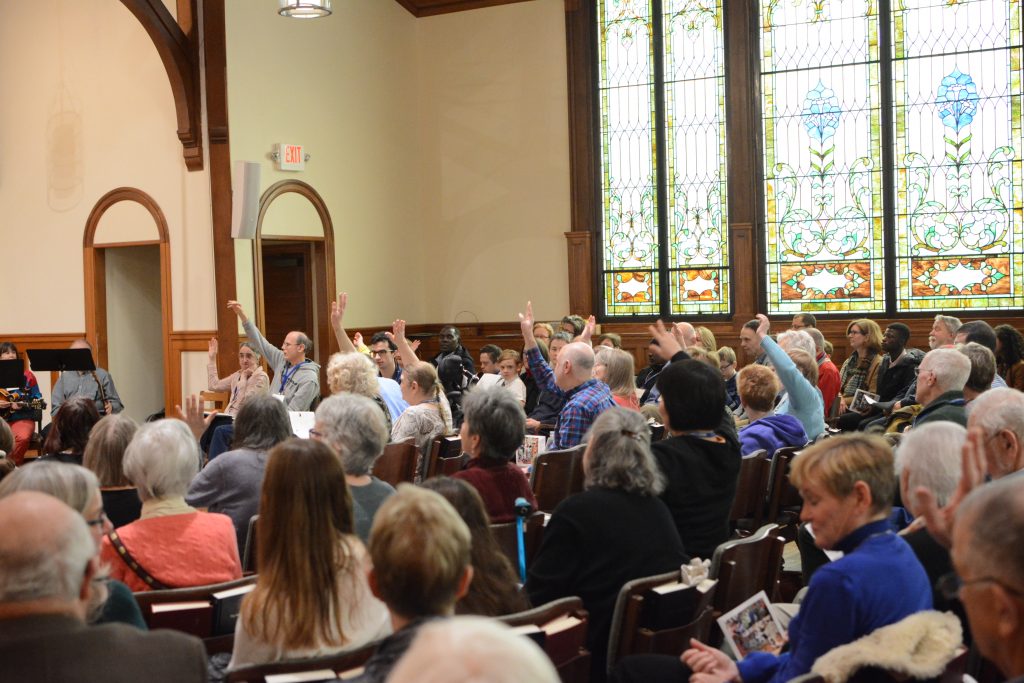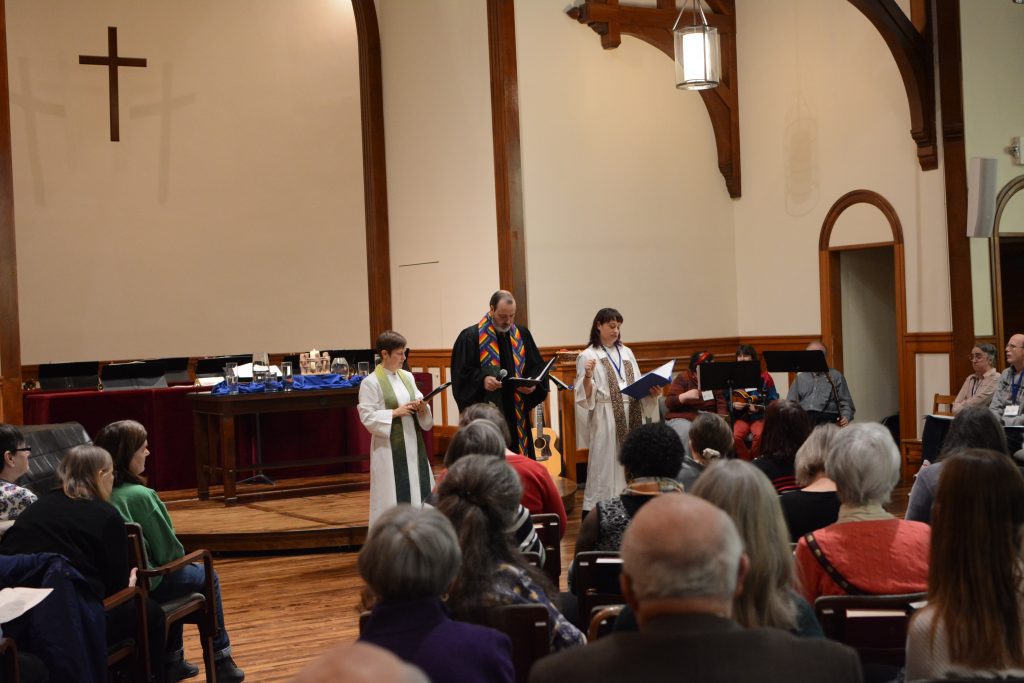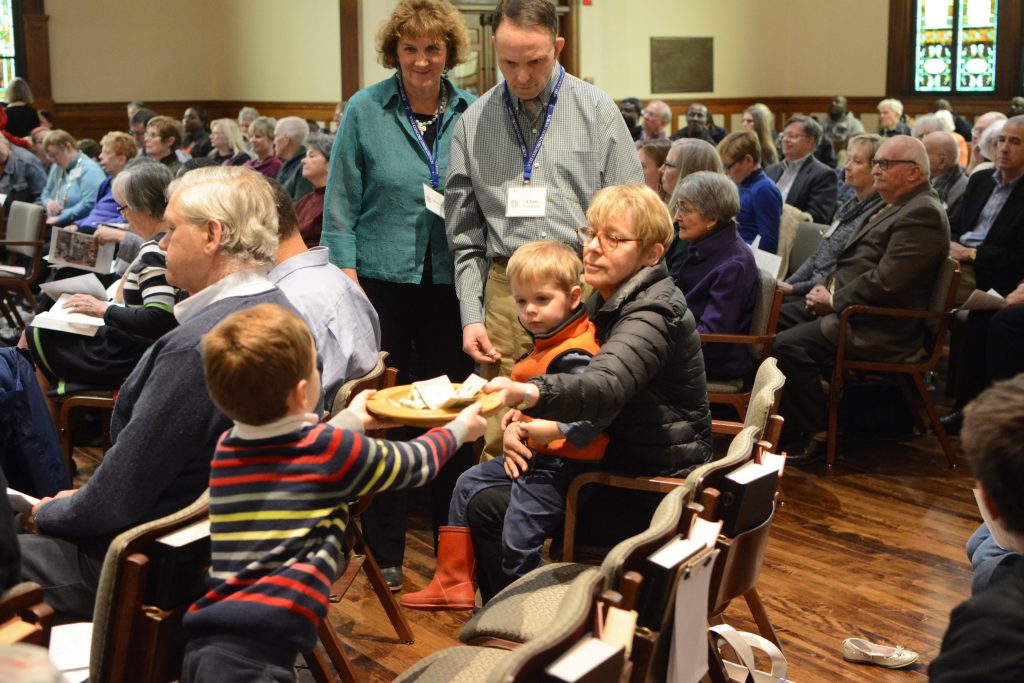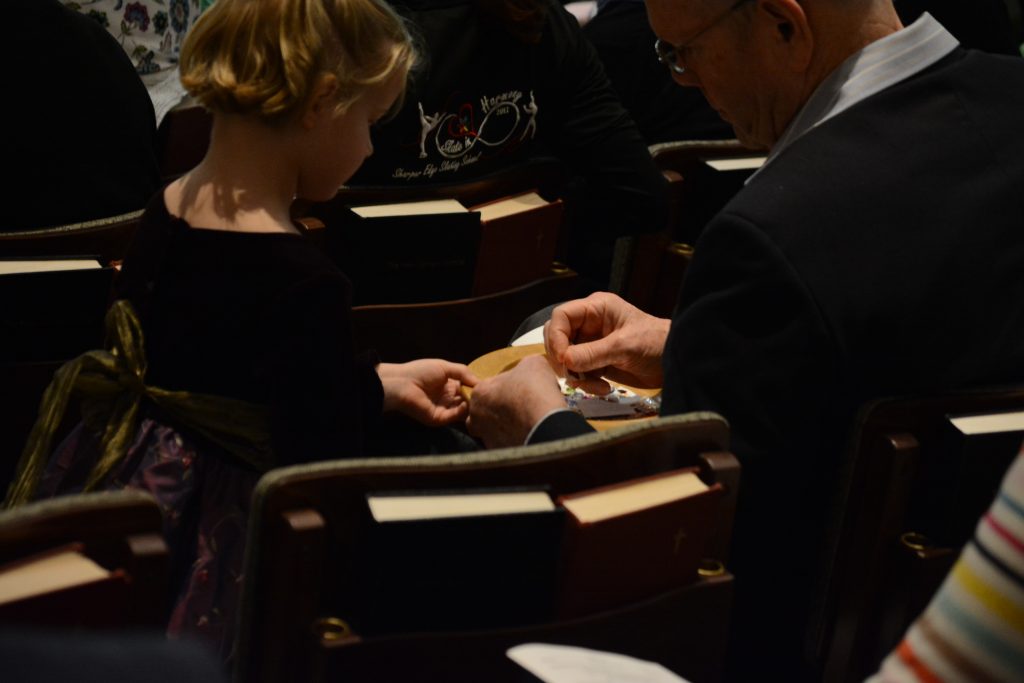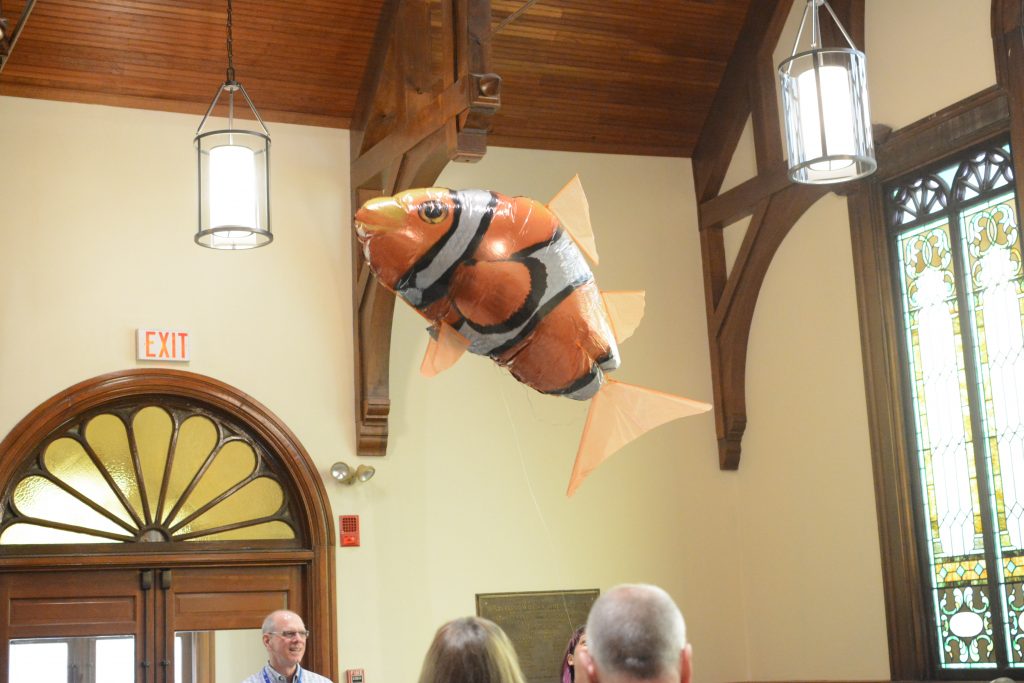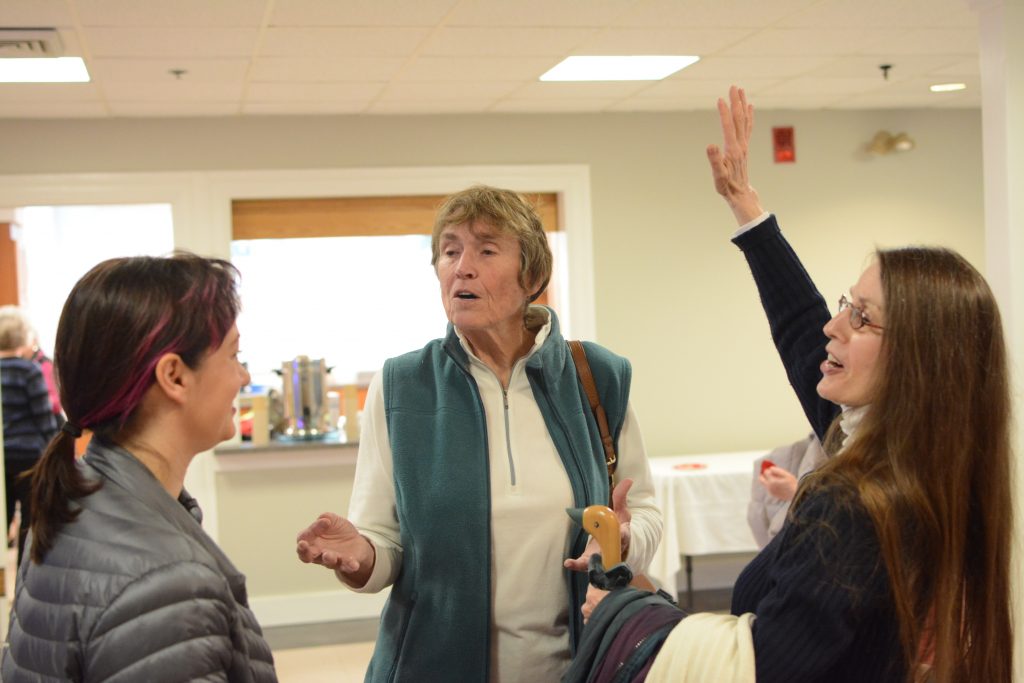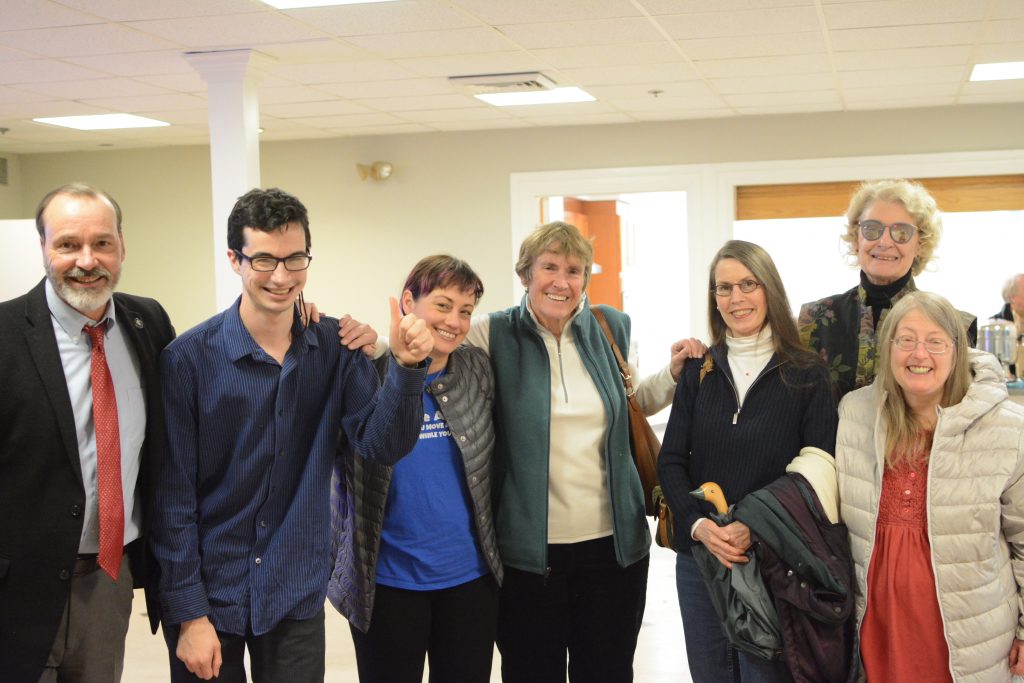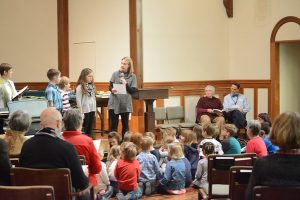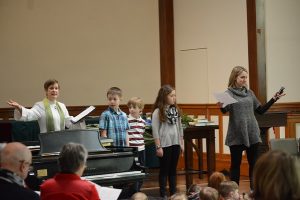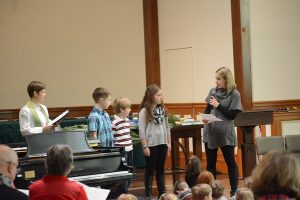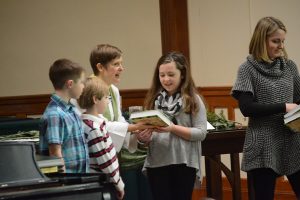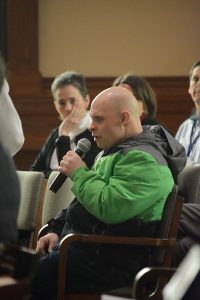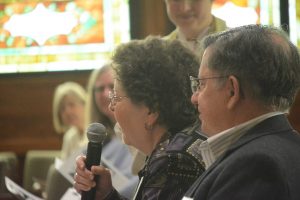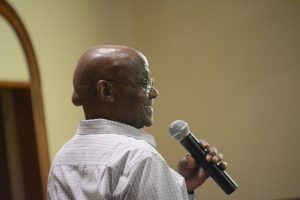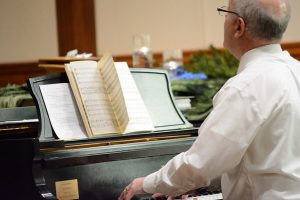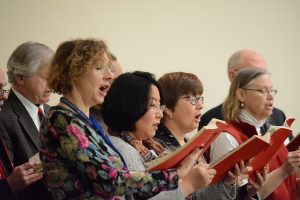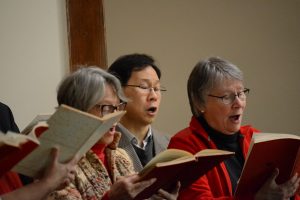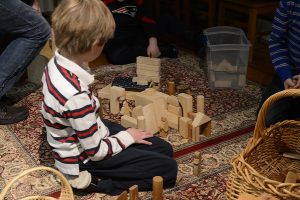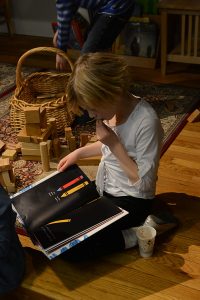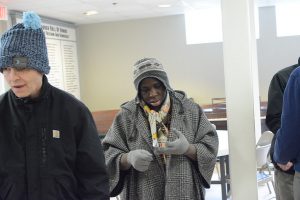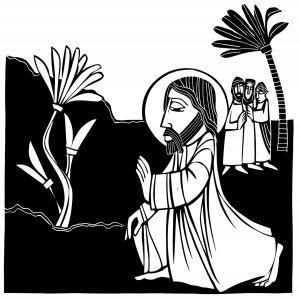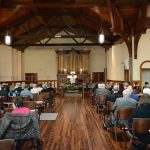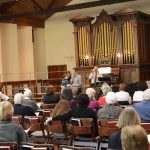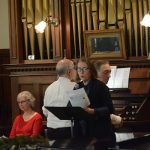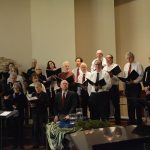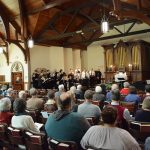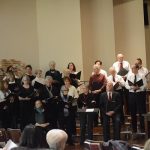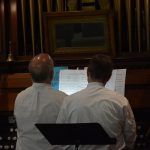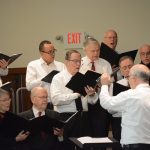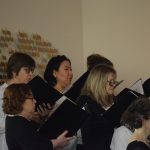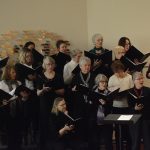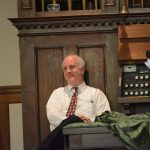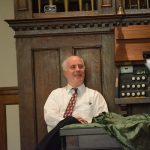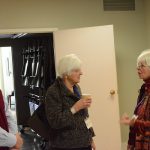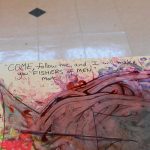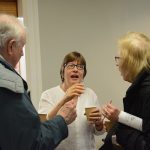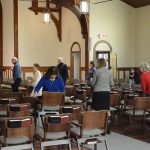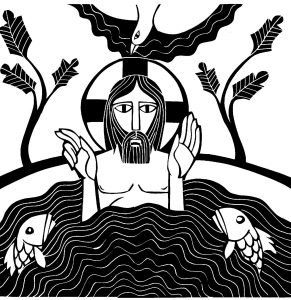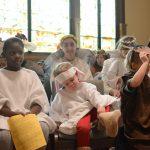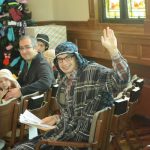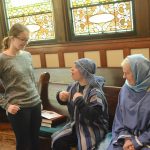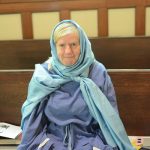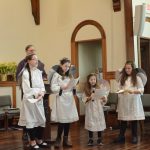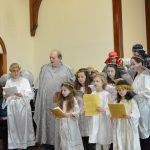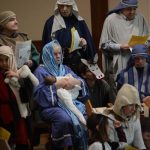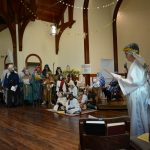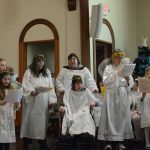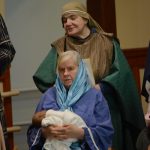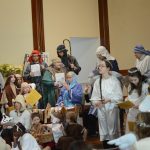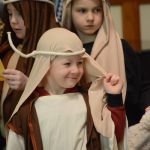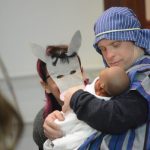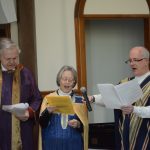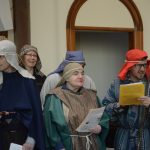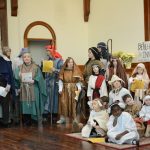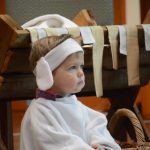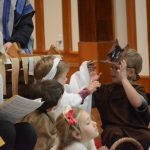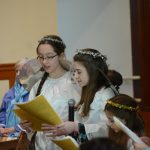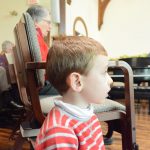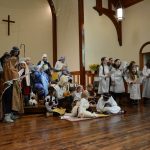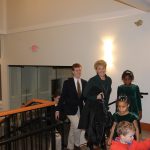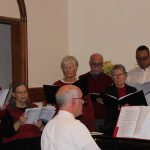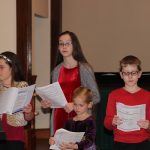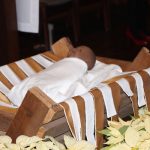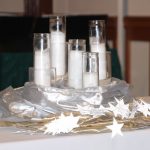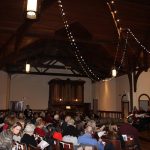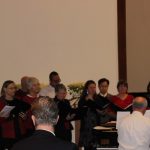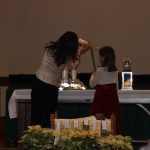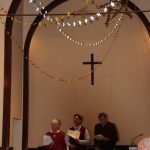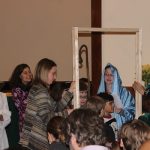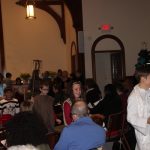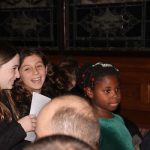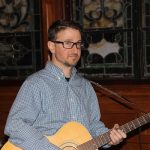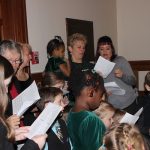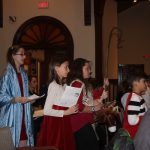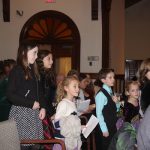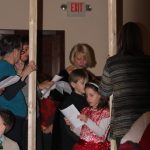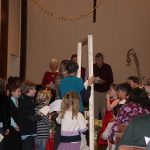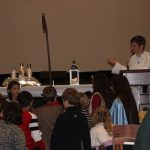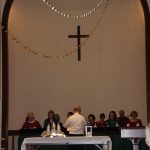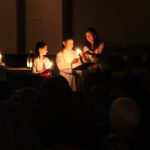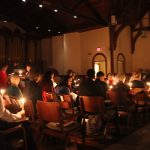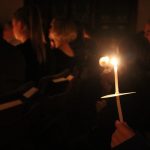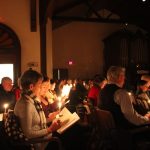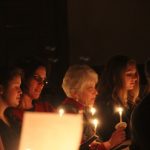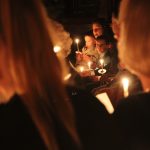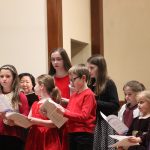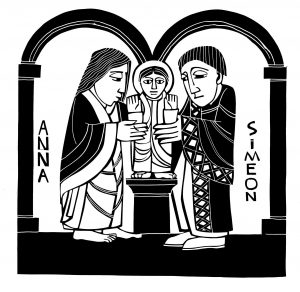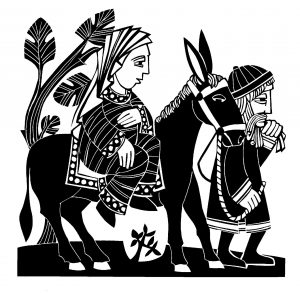Posted in Worship
Happy 35th Anniversary Sunday Fellowship!
I’d also like to thank Andrew Southcott and the Hospitality Committee for providing all of the healthy snacks we enjoyed after worship as well as our guest preacher Rev. John Hudson. John told some stories about his experiences with Sunday Fellowship back in the day when he was senior pastor at WCUC. And David Swain took over 300 photos. Here are some of them! Thank you all
Celebrating our bible recipients!
Congratulations to our three bible recipients on their faith formation milestone! Please enjoy the photos of our bible presentation during worship on Sunday, February 4th and our special bible forum afterwards. The children and parents enjoyed a scrumptious snack, a special bible scavenger hunt, and a chance to create their own bookmarks. The kids (and parents!) left excited to USE their bibles and explore more at home!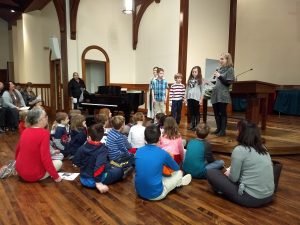
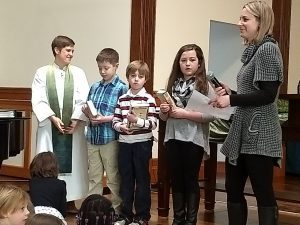
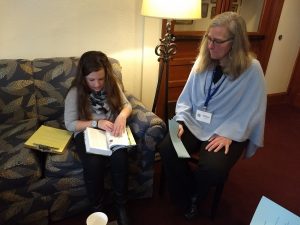
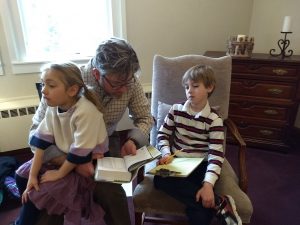
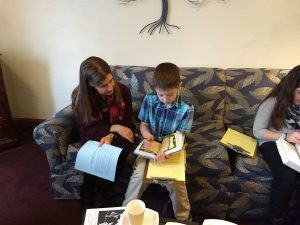
Worship 2.4.18
Thanks to David Swain for capturing these images of our Bible presentation, worship, and fellowship!
Power from God
The New Yorker ran a cover last week about the month of January: did anyone see it? It is a cartoon called “The Cruelest Month,” and the author is Roz Chast. The days of January are laid out as if they were an old-fashioned Advent calendar. But when you open each day’s door, instead of a surprise or a treat, you see a depressing label. Early in the month, the labels read: Cold; Grey; Wet; and then: Cold, Grey, and Wet. Other labels include: Arctic Blast. Ice Storm. Flu. Flu. Flu. By the end of the month, it has progressed to: Weird frozen pellets. Cabin fever. Dentist. Why me, Lord? And, Still January.
On Friday, we progressed into the month of February, but regrettably, the groundhog predicts six more weeks of winter. To which I say, No Thanks.
Winter starts nicely in this part of the world. In November and December, as it gets darker and colder, we have holidays to distract and cheer us. The first few snowfalls, whenever they come, are beautiful. Early January can feel refreshing: it’s nice to have a new year, a blank slate.
But at this point, the darkness and the chill, the ice and slush, and the many, many illnesses have worn out my patience. Is anyone with me? This is to say nothing of all the non-weather-related reasons we each may have to feel tired and discouraged. I know there are many. Why not just concede defeat to winter, and retreat to a couch until further notice?
I feel a little embarrassed by my winter doldrums, however, when I turn to the gospel of Mark. We are stretching the earliest passages in Mark over many weeks in church, but back to back, they are a bracing read. Jesus is wasting no time at all. The gospel rushes from Jesus’ baptism, to Jesus’ first sermon and the calling of the first disciples, to an impressive sermon in a synagogue, to an exorcism, to a mass healing of every sick person in a whole city. Meanwhile, the writer keeps using words like “immediately” to help us get it: big things are happening, and they are happening fast.
How is Jesus keeping up this pace? Is this something we should be trying to emulate in our own lives? But before the passage ends, there is an abrupt interruption in the headlong trajectory of Jesus’ ministry. Following the marathon healing session, the text tells us, Jesus gets up early in the morning, while it is still very dark, and goes out to a deserted place, and prays. He takes a break. He fuels up with prayer. (more…)
Special Music: Organ Selections
On January 21st we had a very special Special Music Sunday. We once again welcomed our friends from Holy Family Parish Choir and thanks to our new flexible seating arrangement, Jim was able to incorporate Organ selections:
- Magnificat [Luke 1:46-55] by David Hogan (1941-1996)
- In Thee Is Gladness by Daniel Kallman (b. 1956)
- Tomorrow Shall Be My Dancing Day by John Gardner (1917-2011)
- Alleluia by Randall Thompson (1899-1984)
- The King of Love My Shepherd Is [Psalm 23] by Edward Bairstow (1874-1946)
Thank you to all the musicians for leading us in worship in such a wonderful way. See pictures below!
Blessed & Filled
When does Jesus become Jesus?
The Gospel of John tells us that Jesus has always been, from the beginning of time: in the beginning was the Word. Luke and Matthew emphasize all the signs that occur while Mary is pregnant and when Jesus is born. His birth is the time he arrives among us, according to these gospels. But in the gospel of Mark, there’s no mention of any of this. Instead, this gospel begins with Jesus’ baptism.
John is in the wilderness, proclaiming a baptism of repentance for the forgiveness of sins. Lots of people are going out to hear him: people from all over the Judean countryside and even from the great city of Jerusalem. Many are baptized by John in the river Jordan, confessing their sins.
Jesus joins these throngs of people. Apparently, he is just one of the crowd. No one seems to know who he is. Nothing seems to mark him as special. Nothing, that is, until it is his turn to be baptized. As Jesus comes up out of the water, he sees the heavens torn apart. The Holy Spirit descends on him like a dove and a voice comes from heaven, saying: “You are my Son, the Beloved; with you I am well pleased.” Amazing.
In this gospel, Jesus’ baptism is the moment when Jesus becomes recognizably Jesus: holy, special, singled out. Strangely, however, the text doesn’t tell us if anyone else notices. It is Jesus who sees the heavens torn apart. Was it only Jesus who saw that? Was it only Jesus who felt the Holy Spirit, or heard the voice from heaven? It hardly seems to matter. Jesus has this amazing baptismal experience: and that experience starts him off on a journey towards his calling.
This week, our President was in the midst of a discussion about immigration when he said some words denigrating Caribbean and African nations – words I will not repeat here. I’m sure I don’t need to. You’ve heard them already. Looking out from his vantage point as a wealthy white American man, he expressed his utter disregard and disgust for people with less wealth, with different skin colors, with different cultural and political backgrounds, with more recent American immigration dates.
The president’s comments were profane, but that is not the worst thing about them. These comments and many of the reactions to them demonstrate the continuing power of white supremacy in our nation. Too many believe that white skin and wealth and power are what make people valuable: worthy of citizenship, worthy of human rights, worthy of compassion.
The lies of white supremacy are not only vile in and of themselves. They are worthy of our deepest condemnation because they purposefully obscure and ultimately legitimize the most shameful parts of our collective history. The economic inequality we witness today both within and beyond our country is not the result of a difference in capability or effort, or even the result of chance. It is, instead, the result of a systematic stripping of resources from the hands and lands of people of color. Our white European and American for-bearers took what they wanted to enrich themselves and justified it with racism. We even took people. We took people, people our white fore-bearers kidnapped and enslaved.
To now denigrate and despise those whom we and our ancestors have wronged does not demonstrate American greatness. Instead, it adds grave insult to a devastatingly vast and infinitely painful injustice, a national crime.
Thankfully, the voices of people like our President are not the only ones we hear in this nation. This weekend we give thanks for the life of the Rev. Dr. Martin Luther King, Jr.. By extension, we also celebrate the movements that he was a part of: movements for civil rights, and for the alleviation of poverty, and for the end of the Vietnam War. (more…)
The Way is Clear: Pageant Photos!
Thanks to everyone who came together to make our pageant happen!
Las Posadas Christmas Eve
This year we explored the tradition of Las Posadas throughout Advent and Christmas, including our 5pm Christmas Eve service! Here are some pictures:
Holy to the Lord
On this Sunday after Christmas we hear a story that is only found in the gospel of Luke, a story that often gets lost amidst the other stories of this season. Jesus’ parents bring him to Jerusalem, to the great temple, to present him to God, and to designate him as holy to the Lord.
In this story we witness the faithfulness of Joseph and Mary. They are following ancient Jewish customs despite very limited means. To travel to Jerusalem after their trip to Bethlehem must have been difficult. They do it anyway, and their temple offering of two turtledoves marks them among the very poor.
It was a modest ceremony for a faithful family: important, but unremarkable. But this ceremony is transformed by the witness of two very special people. One is Simeon, a righteous and devout man, who is full of the Holy Spirit, and anxiously waiting for God’s action in the world. The other is Anna, an elder who worships perpetually in the temple with fasting and prayer. Both Simeon and Anna recognize Jesus as a source of redemption and praise God for the gift of this special child. Their words amaze Joseph and Mary. Apparently the events of the pregnancy and birth had not yet quite convinced them what was in store for this tiny baby.
When the ceremony is over, the family returns home, to their own town of Nazareth. The text tells us: “The child grew and became strong, filled with wisdom; and the favor of God was upon him.”
This story is rich with meaning. It could help us reflect on the place of Jesus in Jewish and Christian traditions, and how our Christian tradition both honors and fails to honor Jesus’s Jewish faith. It might lead us to consider the role of elders such as Simeon and Anna: their power to shape how we understand ourselves and our faith. We could explore how Simeon and Anna play a role in moving us from Christmas to Epiphany, spreading the word about Jesus to the temple community and the world.
Today, however, I am struck most by how this very special presentation of a baby in a place of worship echoes what happened to many of us. As babies or children, many of us were brought into churches, or synagogues, or other holy places, to be named, or blessed, or baptized. Our families longed to see us recognized and dedicated as “holy to the Lord.”
Jesus was unique. But all babies are special. Each person is created in the image of God and is recognized by God. We are each holy to the Lord, regardless of what ceremonies are performed. But how many of us carry that sense of holiness, of specialness, of blessedness, far beyond any days of special ceremony?
As we travel over the brink between Christmas and Epiphany, between 2017 and 2018, many people think about starting fresh. Making resolutions. Turning over a new leaf. Setting new goals.
Here in the church we are called to remember that we are already precious in God’s sight. We have always been known and loved. And any change we seek, we will find most fulfilling if it is also a change that God longs for, for our healing and for the healing of the world.
How can we know what God is longing for? One way is to listen. This year we are returning this year to a tradition we have tried before, the tradition of star words. Words have been chosen and placed on these shiny stars, and laid out for you here in the sanctuary. You are invited to come and choose a star today, to see if God might lead you through the word written on the back of it. There are a few rules: please don’t peak, no give-backs, no changies. Let’s seek out a star to guide us, as Jim plays for us.
Does everyone have a star? Have you read your word, or had help reading it? Now maybe your word speaks you. Great. If it doesn’t, I ask that you give it a chance. Let it marinate, look up its meanings. Hang it up somewhere and wait to see if it has something to offer you in a week, or a month, or next December. If you hate your word, let me tell you, you’ve hit a jackpot: because that means it has something to teach you. Whatever your word is, I invite you to take it home with you, and try to allow God to guide you through it, in the coming year. And then we’ll gather here again, next Christmas season, and see what new stories God has told among us.
God, you made us, you know us, you love us. We have been holy because of your blessing from the beginning of our lives. Help each person here to feel how deeply we are treasured. Grant us the help we need for the next stage of our journey, this season of challenge and change.May our hearts find ever better ways, with your guidance. Amen.
Stars will be available on January 7th for anyone who missed picking them up!
Finding a Posada
Luke 2:1-20
The beautiful holy story we remember tonight takes place amidst bureaucratic red tape.
The Roman Empire needed money, and so it needed to collect taxes. But how can you collect taxes if you don’t know who you’re taxing? The first step is a registration: a census. And for some strange reason, in this story, everyone is counted not where they live, but in their place of origin, in the city from which their family’s male line comes from. It seems like a strange plan to me for organizing a census; but that’s the way our story goes.
Joseph’s people were, Luke tells us, from Bethlehem. And Mary and Joseph lived in Nazareth. So Mary and Joseph join the nameless crowds of people that were on the move that season. So many people, traveling by foot or by animal or by cart. So many people, improvising places to stay, and ways to get fed. So many people, standing in lines, and filling out forms. It must have been terribly disruptive and inconvenient and costly and even dangerous for these folks to travel. Still, it was less risky than disobeying the empire.
That journey from Nazareth to Bethlehem was not a good time to give birth. But babies don’t wait for bureaucracy. They don’t care about borders, either. They come when it is their time to come. And, as it happened, Jesus was ready to be born. So Mary and Joseph have to do the best they can, in a truly unfortunate situation. Mary births outdoors, perhaps, or in a stable – the text doesn’t say. And Mary lays the baby in a manger, in a trough made for animals to drink out of – because there is no place for her family in the inn.
It’s only one phrase in the story: “there was no place for them in the inn.” But it’s a phrase that helps shape our whole understanding of Christmas. And out of this phrase came the tradition of Las Posadas, which means the Inns, the shelters, the accommodations. For nine nights, in Mexico and in Spain and beyond, communities fill the streets. They follow behind people dressed as Mary and Joseph, and sometimes a real live donkey. They look for a place to stay. At first the Holy Family and their friends are turned away. No, there is no room, you are strangers, we couldn’t possibly help. But then, eventually, each night, the travelers are welcomed in; to a home full of light and food and music, or into a brightly decorated church. The travelers come in to kneel around a nativity, and to pray or to party or both. The last night of Las Posadas is tonight: Christmas Eve.
This tradition that we reenacted with children at our five o’clock service tells our holy story in a wonderful way. Las Posadas also invites us to consider: who is getting left out today? Who is barring the door? And how can we all work past the very human instinct to distrust a stranger, and welcome holy families, and holy children, into our midst?
Unfortunately, it is all too easy to think of people being left out today. We might remember the immigrants and refugees who seek safety and opportunity in our nation, or in Europe. Too many of these precious children of God are spending their holiday season in detention centers or in refugee camps; away from family; in want and in fear. Others are being left out for other reasons. They are not seeking a new nation, but face distrust and discrimination right where they are, because of differences of skin color, culture, religion, wealth, sexual orientation, gender expression, and more.
Some say that God sent us Jesus, our Emmanuel, our God-with-us, so that we could finally see the divinity that resides in humanity. It has always been there, of course – God created us, all of us, in God’s own image. But two thousand years ago, we seemed to need a reminder that God’s glory could coexist with the common stuff of human life. So God sent us Jesus. Jesus: in whom the presence of God is so blindingly clear, that it cannot be missed. God wanted to let us know: even in these flawed and humble creatures, in their great complexity and diversity: even in people like you and me, lives the breath of God. When you help the least of these, you are showing hospitality to God herself.
In our Christmas story, God is born as a human child in a world of tragedy and injustice and poverty and division. And his birth changes things. Now, Mary and Joseph still have no choice about taking their trip to be counted in Bethlehem. And they can’t change, either, the distrust or dismissal or exhaustion that leads all the innkeepers to turn away a mother in labor. Yet still, through the grace of God, Mary and Joseph find a welcome. Animals keep them company while they cradle their child. Angels are put to work bringing news of his arrival. Shepherds, dirty and rude, come rushing to witness the babe. There’s enough folks for a party, or a prayer service, and good news to celebrate: good news of great joy for all the people.
No matter what you witness when you look out into the world today, at Christmas we remember that humanity has been at least twice blessed: by God’s creation of human life, and by the incarnation of God as Jesus. If God made us, and has accompanied us from the beginning; if God came to be with us in flesh and blood; then perhaps we are, all of us, redeemable: capable of recognizing and following the divine within us. Capable of recognizing and honoring the divine within one another.
In this beautiful place that is marked by unjust laws and selfishness and cruelty and plenty of our own modern bureaucracy, God keeps gently inviting us into lives that are run by a different logic. Look, God says: see the holy child, filled with everlasting light. Listen to the solemn stillness, and the glorious songs. Observe the tender care of the new parents, the awe of the shepherds, the angels’ watch of wondering love.
If all this is true, then perhaps we may find ways to welcome the Marys and Josepsh that come knocking at our doors, heavy laden by life’s crushing load. If all this is true, then perhaps along our own weary roads, we may find rest in the Posada, the inn, of God’s own love. For God is waiting for every wanderer, for all of us – ready to provide some modest but truly warm accommodation, with shelter, and food, and light, and love, and prayer, and maybe even a party. Thanks be to God.
